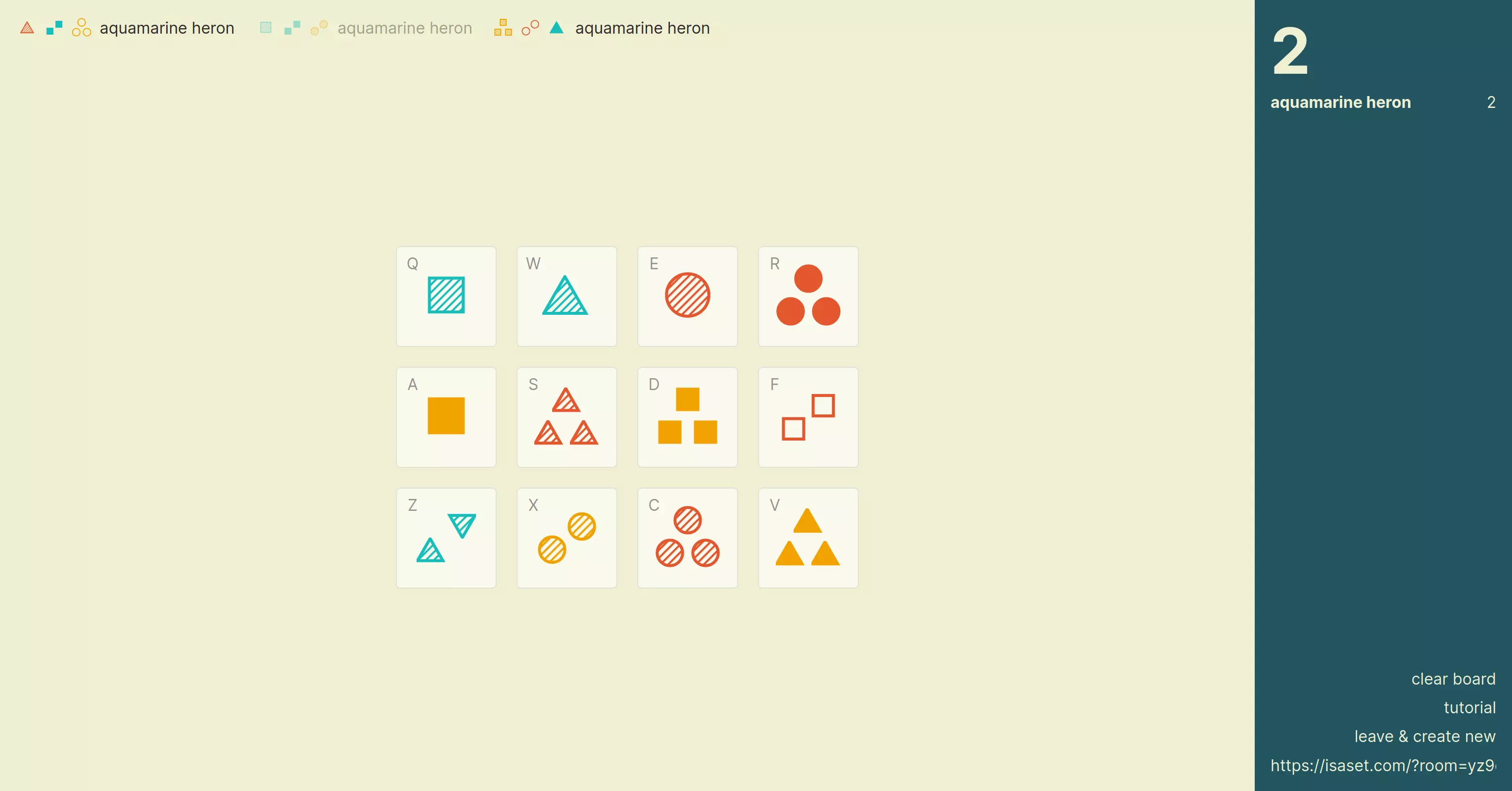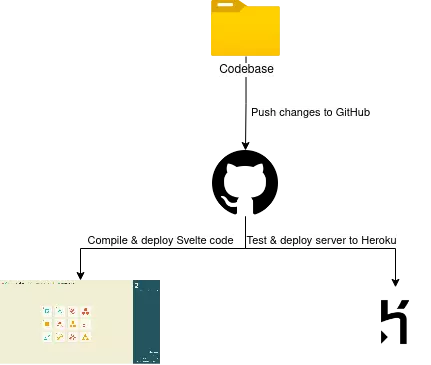Passt
A real-time puzzle game built with friends. Check it out!
- Server Implementation
- Game Rule Implementation
- Database Design
- TypeScript
- WebSockets
- PostgreSQL
- Heroku
- Florian Janke
BACKGROUND
This was just a for-fun personal project that a friend and I built in our free time in Spring 2020. My friend had recently found the game Set, which is a real-time card game where people use pattern matching to identify groups of related cards. My friend and I wanted to experiment with some new web technologies, so we decided to build this game as a real-time multiplayer game.
IMPLEMENTATION
While Florian was experimenting with Svelte on the frontend, I wanted to experiment with building a WebSocket server with solid type safety and high test coverage. Since this was going to be a small-scale project and didn't require an extreme amount of structure, I chose to go with TypeScript for the backend, powered by Node.js. I chose to use Socket.IO to simplify the process of handling WebSockets.
To streamline the process of making changes to the game, I built an automated deployment system that compiled, tested, and deployed our code every time we pushed a change to GitHub. This significantly improved our overall developer experience, as each code change we made was live in a matter of minutes. Best of all? It didn't cost us a cent.

CHALLENGES
Socket Disconnections
One thing that became immediately important was handling random socket disconnections that could emerge when a person switched networks, or minimized the browser window on their mobile device. If a person got disconnected and reconnected, they lost all of their points and progress and there was no way of getting them back. To persist data during socket disconnections, we set up a PostgreSQL database, and used browser cookies to re-identify users.
Keeping it Free
Since neither Florian nor I wanted to spend money on this project beyond a domain name, we had to figure out a way of hosting the frontend and WebSocket server for free. Ultimately, we decided to host the frontend on GitHub Pages, and run the backend on Heroku, which let us operate comfortably within their free tiers.